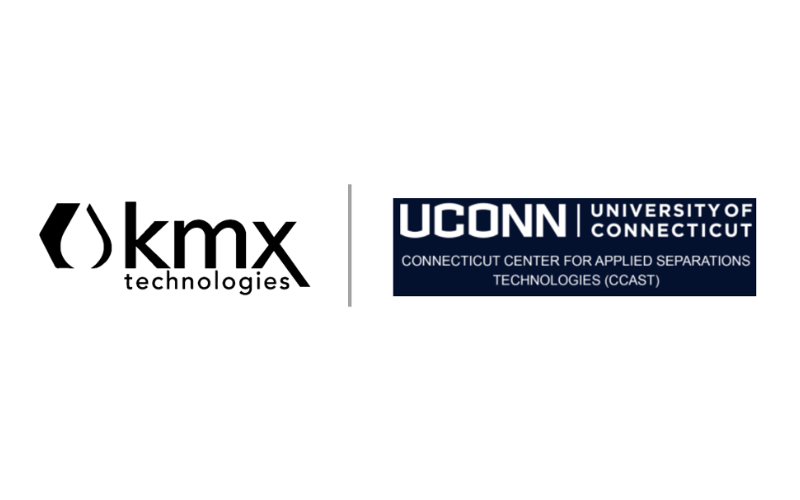
KMX Technologies (“KMX”) and the Connecticut Center for Applied Separations Technologies (“CCAST”) at the University of Connecticut, today announced the formation of a research partnership spanning water, lithium, critical minerals, and solar desalination.
The partnership leverages KMX’s expertise as the leading vacuum membrane distillation technology provider, and CCAST’s experience accessing advanced separation technologies.
Additionally, KMX is honored to be CCAST’s commercial partner for the U.S. Department of Energy’s Solar Desalination Prize.
Zachary Sadow, KMX CEO, said, “Harnessing solar power is a game-changer for membrane distillation and could further enhance the sustainable development of lithium and other critical minerals, as well as provide a new source of freshwater for arid regions”. He added, “We are thrilled to partner with CCAST for solar desalination, lithium concentration, and new critical mineral and water recovery processes”.
Dr. Jeffrey McCutcheon, Director of CCAST, said, “KMX is a leading innovator in membrane distillation technology. We are excited to work with them to identify new opportunities for membrane technology to have an impact on desalination and resource recovery. We are also eager to partner with them on our American Made Challenges: Solar Desalination Prize which seeks to demonstrate a ceramic-based membrane distillation process”.
About KMX Technologies
KMX Technologies is solving the most critical environmental and energy challenges of the 21st century. Through its proprietary membrane distillation technology, the company is accelerating energy storage with its direct lithium recovery enhancement processes, sustainably sources critical minerals necessary for next-generation supply chains and infrastructure and is advancing wastewater treatment.
About CCAST
The Connecticut Center for Applied Separations Technologies (CCAST) is dedicated to supporting the industry by identifying opportunities to implement membrane and other advanced separation technologies into various industrial and manufacturing processes in order to lower energy use, reduce carbon footprint, limit waste, and prevent adverse environmental and health impacts.

